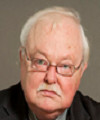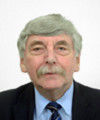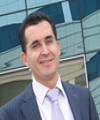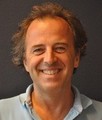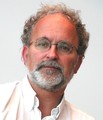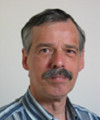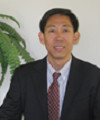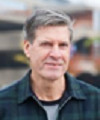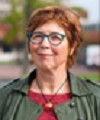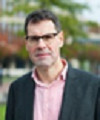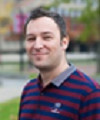Dutch lecturers
Kees Beenakker
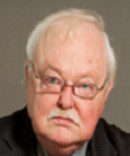
Name: | C.I.M. (Kees) Beenakker |
Position: | Emeritus professor |
Faculty: | Electrical Engineering, Mathematics and Computer Sciences (EEMCS) |
Department: | Microelectronics |
University: | TU Delft |
E-mail: | |
Website: |
Biography: Kees Beenakker joined Philips Research Laboratories in Eindhoven in 1974. In 1982 he moved to the Philips Semiconductor Division in Nijmegen to become head of the corporate assembly process and equipment development. In 1987 he resigned at Philips and became cofounder of Eurasem, a European hi-rel IC assembly company. In 1989 Kees Beenakker joined Dimes and is since 1990 full professor at the faculty of EEMCS. From 1990 till 2004 he was chairman of the ECTM laboratory. From 1999 till 2009 he was chairman of the department of Microelectronics and Computer Engineering and from March 2007 till May 2012 he was scientific director of DIMES, the Delft institute of microsystems and nanoelectronics. From May 2012 till August 2013 he was director of the TU Delft-Beijing Research Centre in Beijing. He was guest professor at Tsinghua University and at the Institute of Semiconductors (CAS), both in Beijing. He is now member of the board of Jiaco-Instruments in Delft and Boschman Advanced Packaging Centre in Duiven, NL.
J. T. Fokkema
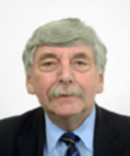
Name: | J.T. Fokkema |
Position: | Professor of Applied Geophysics |
Faculty: | Faculty of Applied Physics |
Department: | Imaging Physics |
University: | TU Delft |
E-mail: |
Biography: Jacob Fokkema received the MSc degree in electrical engineering and the PhD degree in technical sciences in 1976 and 1979, respectively. From 1980-1981 he was a postdoctoral research fellow at the integrated systems laboratory at Stanford University. In 1982 when he was appointed as scientific staff member in the section of Applied Geophysics Department of Delft University. In the academic year 1987-1988, he was a visiting professor in the Institute of Geosciences and Physics of the Federal University of Bahia in Salvador, Brazil. In 1993, he was appointed full professor of Applied Geophysics in Delft and visiting professor at the Catholic University of Louvain. In 2001 he was appointed as special professor of Applied Geophysics at the Free University of Amsterdam. He was Rector Magnificus of the Delft University of Technology from 2002 till 2010. From 2010 till 2017 he was the chairman of Earth and Life Sciences of the Dutch Science Foundation. He received the 1997 Conrad Schlumberger Award and best paper Award Geophysics in 2006. In 2014 he was elected as Honorary Member of the EAEG.
Said Hamdioui
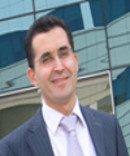
Name: | Said Hamdioui |
Position: | Professor and Head of Computer Engineering Lab |
Faculty: | Electrical Engineering, Mathematics and Computer Sciences (EEMCS) |
Department: | Software & computer Technology |
University: | TU Delft |
E-mail: | |
Website: |
Biography: Hamdioui received the MSEE and PhD degrees (both with honors) from TUDelft, The Netherlands. He is a chair professor and head of Computer Engineering Laboratory of TUDelft. Prior to joining TUDelft, Hamdioui worked for Microprocessor Intel (CA, USA), Philips Semiconductors R&D (France) and for Philips/ NXP Semiconductors (Nijmegen, The Netherlands). His research interests include Emerging Dependable nano-computing .
Hamdioui owns one patent and has published one book and over 170 technical papers. He has consulted for many worldwide semi-conductor companies in the area of testing and has collaborated with many industry/research partners. He is strongly involved in the international community and has delivered dozens of keynote speeches, distinguished lectures, and invited presentations and tutorial at major international forums /conferences /schools and at leading semiconductor companies. Hamdioui is a Senior member of the IEEE, Associate Editor of IEEE Transactions on VLSI Systems, and he serves on the editorial board of IEEE Design & Test, and of the Journal of Electronic Testing: Theory and Applications. He is also member of AENEAS/ENIAC Scientific Committee Council (AENEAS =Association for European NanoElectronics Activities).
Koen Bertels
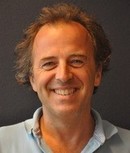
Name: | Koen Bertels |
Position: | Professor and Head of Quantum Engineering Department |
Faculty: | Electrical Engineering, Mathematics and Computer Sciences (EEMCS) |
Department: | Quantum Engineering |
University: | TU Delft |
E-mail: | |
Website: |
Biography: Koen Bertels is professor and head of the Quantum Engineering department in the faculty of Electrical Engineering, Mathematics and Computer Science. His research focuses on hardware/software co-design for heterogeneous multi-core platform and he investigates alternative computing architectures and technologies such as memristor-based computing and quantum computing. He currently is a principal investigator for architectural design in the TUDelft quantum research lab, QuTech. His research is financed by Intel in the context of a 10 year collaboration to build a quantum computer.
Koen Bertels has been program chair and general chair of more than 8 international conferences and workshops such as SAMOS, FPL, RAW, ARC. He was the scientific coordinator of the hArtes Integrated project and general coordinator of the SARC integrated project. He has also founded 2 companies and regularly acts as reviewer and innovation expert for the EU commission.
Rob Fastenau
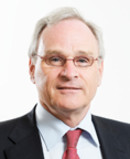
Name: | Rob Fastenau |
Position: | Dean Faculty EEMCS & Dean Extension School |
Faculty: | Electrical Engineering, Mathematics and Computer Sciences (EEMCS) |
University: | TU Delft |
E-mail: |
Biography: Rob Fastenau is dean of the faculty Electrical Engineering, Mathematics and Computer Science of Delft University of Technology since January 2011. This faculty of the TU Delft has approximately 2000 BSc and MSc students and 400 PhD students.
He is also dean of the TU Delft Extension School. The Extension School supports all online education – such as MOOC's – in Delft University of Technology.
He started as dean at the TU Delft after almost 30 years in high tech industry, where he had researcher and management positions in Philips Research and in FEI, a leading manufacturer of electron microscopes.
Rob completed his MSc in 1977 and his PhD in 1982, both in Technical Physics at the Delft University of Technology.
Fred Roozeboom
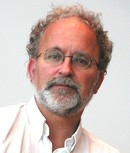
Name: | Fred Roozeboom |
Position: | Professor at TU/e and Senior technical advisor at TNO |
Faculty: | Applied physics |
Department: | Plasma & Materials Processing |
University: | Eindhoven University of Technology |
E-mail: | |
Website: |
Biography: Fred Roozeboom received his PhD in 1980 at Twente University, Netherlands. From 1980-1983 he worked on zeolite catalysis with Exxon R&D in Baton Rouge, USA. In 1983 he joined Philips Research (since 2006: NXP) in Eindhoven. From 1997-2009 he led a team working on passive and heterogeneous 3D integration for applications in wireless communication, power management and digital signal processing. In 2007 he received the Bronze Award for ‘NXP Invention of the Year’, became NXP Research Fellow, and part-time professor at TU Eindhoven, in the dept. Applied Physics, group Plasma & Materials Processing.
In 2009 he left NXP and joined TNO, Eindhoven, to work in a team specializing in spatial ALD and other high-speed processing. In 2011, this team received the 2nd EARTO Innovation Prize Award. In 2014 he was elected Fellow of the Electrochemical Society. Fred has authored or co-authored over 200 journal and conference publications and 5 book chapters (h-index 31), holds 30 granted US patents and approximately 35 WO patent applications, and is the editor or co-editor of 35 conference proceedings on semiconductor processing. Fred is a member of the SEMI Europe Semiconductor Technology Programs Committee. Topics of interest: ultrathin-film technology, plasma processing, spatial ALD (incl. roll-to-roll), RTP, reactive ion etching, 3D passive and heterogeneous integration, microsystem technology, Li-ion micro-batteries, sensors, displays.
Marcel Pelgrom
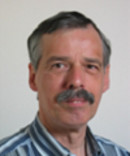
Name: | Marcel Pelgrom |
Position: | Professor / Consultant |
University: | TU Delft / TU Twente / KU Leuven |
E-mail: |
Biography: Marcel Pelgrom received his PhD from Twente University, The Netherlands. In 1979 he joined Philips Research Laboratories, where his research has covered topics as Charge Coupled Devices, MOS matching properties, analog-to-digital conversion, digital image correlation, and various analog building block techniques. His IEEE Journal of Solid-state circuits’ paper on mismatch is the third most cited paper of this Journal.
He has headed several project teams and was as a team leader for high-speed analog-to-digital conversion responsible for many conversion products. From 1996 till 2003 he was a department head for mixed-signal electronics research. In 2003 he spent a sabbatical in Stanford University where he was appointed a consulting professor. Till 2013 he was with NXP Semiconductors. Next to various activities concerning industry-academic relations, he was involved as a research fellow in research on substrate noise, variability and advanced conversion techniques. Presently he is an independent consultant advising international institutions and companies.
Dr. Pelgrom served twice as an IEEE Distinguished Lecturer, as associate editor, is columnist for the IEEE Solid-State Circuits Magazine, and has written over 40 publications, three books, seven book chapters and holds 37 US patents. He is lecturing at Twente and Delft Universities, and for MEAD/EPFL. He is an honorary professor at the KU Leuven and the 2017 recipient of the IEEE Gustav R. Kirchhoff field award for fundamental contributions in electronic circuits.
Hans Kerkhoff
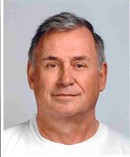
Name: | Hans Kerkhoff |
Position: | Associate Professor |
Faculty: | Electrical Engineering, Mathematics and Computer Sciences (EEMCS) |
Department: | CTIT - TDT |
University: | University of Twente |
E-mail: |
Biography: Hans G. Kerkhoff received his M.Sc. degree in Telecommunication with honours at the Technical University of Delft. In the same year, he became staff member of the chair IC-Technology & Electronics at the Faculty of Electrical Engineering, University of Twente in Enschede. He obtained a Ph.D. in Technical Science (micro-electronics) at the University of Twente in 1984. In the same year he was appointed associate professor in Testable Design and Testing at the Faculty of Electrical Engineering at the University of Twente. He worked at MESA+ and the CTIT. He advised 23 Ph.D. students in this research area and has (co-) authored over 300 papers. He is and has been involved in many national (STW, FOM) and EU (FP3-FP7 CEC, MEDEA, MEDEA+, Catrene, ENNIAC, AENEAS) scientific projects. From 1995 up to 1999, he worked in addition part-time at the Philips Research Laboratories in the VLSI Design and Test Group at Eindhoven. In 2000, he founded the consultancy company TwenTest.
G.Q. Zhang
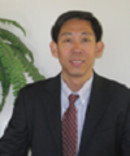
Name: | G.Q. Zhang (Kouchi) |
Position: | Professor |
Faculty: | Electrical Engineering, Mathematics and Computer Sciences (EEMCS) |
Department: | Electronic Components, Technology and Materials (ECTM) |
University: | TU Delft |
E-mail: | |
Website: |
Biography: Prof. G.Q. Zhang chairs "Micro/Nanoelectronics System Integration and Reliability" group, with main research scopes of multi-functional and multi-level heterogeneous system integration; multi-scale (from MD to continuous) and multi-physics modeling and characterization of micro/nanoelectronics, SSL and other wide bandgap semiconductors; design for reliability and fast reliability qualification..
He is IEEE Fellow; scientific director of TUD Beijing Research Centre; co-chair of Advisory Board of International SSL Alliance; co-director of State Key Lab for SSL; deputy director of European’s Centre of Micro/Nano Reliability; secretary general of international technology roadmap of wide bandgap semiconductors (ITRW) . He authored/co-authored more than 350 scientific publications; chaired /co-chaired several international conferences (such as IEEE-EuroSimE, IEEE-ICEPT; Congress of MicroNanoReliability; etc.); serves as associated editor for 3 international journals and chief editor for Springer book series "SSL Technology and Applications".
Prof. Zhang also worked for NXP Semiconductors as Senior Director of Technology Strategy, Philips Research Fellow until May 2013.
MoTivMiles
Names: | Hans van Drongelen, Renske Oldenboom, Jeroen van Lawick, Gunther Sturms (from left to right) |
Positions: | Trainers and coaches in personal- and team leadership development. |
Affiliation: | MoTivMiles |
Country: | the Netherlands |
Email: | |
Website: |
MotivMiles supports (PhD-)students, professionals and leaders in their personal and professional formation.
Our team consists of passionate and dedicated men and women with a variety in backgrounds, skills and experiences that are essential to our work: cultural sciences, humanities, ethics and spirituality, organizational science and training and coaching & counseling, engineering and business life.
Core business of MoTiv is the fostering of conditions helpful for motivation, empowering professionals seeking to explore the value and meaning of their research. The MoTiv-team works on building teams out of individuals, stimulating the drive which alters life and creates real community. MoTiv supports technology-students and young professionals in: (a) developing personal leadership, (b) developing skills for international communication, (c) enhancing presentation skills, (d) developing their social talents, € exploring their motivation in profession and life.
MoTiv has been in charge of the social skills part of the Sino-Dutch high level talent program since it started; the team supports the intensive international cooperation of the students and makes the preparation of the mini-conference not only a technological but also a social learning event of high quality and excellence. Working together in a well-trained, highly equipped team provides pleasure and high standards, giving each of the team members the opportunity to extend their knowledge, competences and experience.

